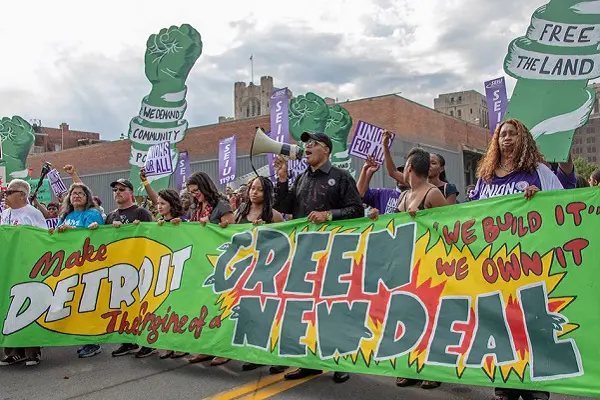by: NATASHA MALINKA MINOVSKA
A generally accepted definition is that the word policy means an activity, which is directed at designing, organizing, leading and regulating the common life of people, in line with their needs, interests, ideas and means in a given community (usually in the state), with the consent or without the consent (with respect) of all.
Policy has the character of an ambiguous occurrence (in the context of the state), which through historical stages has changed its form and content: policy as the “art of governing”, policy as conducting public affairs, policy as a means of resolving conflicts, policy as achieving power, that is, disposing with social resources.
Its elementary division usually refers to: internal and external, as well as: economic, financial, social, cultural, educational, scientific, health and so on.
We have been living in an era of great changes for decades now. It’s clear that the current policy (in much of the world) of humanity towards nature is unsustainable.

The question is raised – how to solve this unsustainability of life with such economic expansion? How to change this industrial, consumer, materialistic society that is exploiting and degrading Earth? How to replace it with a different socio-economic and political order? Which will ensure a more humane and more sustainable coexistence between people and nature?
The realization, and thus the development of awareness on the seriousness of the multifaceted and complex problems in regards to the survival of the human kind that dates back to the 60s, imposes the need of introducing radical changes in human behaviour towards the environment, but also changing the scientific approach (from the environmental perspective) in economy, ethics, law, biology, environment…
As a response to the needs for intervention in the political discourse, a new alternative political ideology emerges, known as Green policy.
What distinguishes it from other political directions is the holistic approach to all the issues. Regardless of whether they are social, gender, occupational or, for example, environmental, problems are necessarily reviewed through a comprehensive analysis, in a given non-universal context and accordingly solved.

Green New Deal demo, Detroit, 31 July 2019 | Becker1999 from Grove City, OH, CC BY 2.0, via Wikimedia Commons
Green policy (or eco-policy) offers solutions for implementation of environmentally sustainable society, rooted in the environment, in an environment of non-violence, social and environmental justice, respect for human dignity and human rights, freedoms, equality, rule of law, non-discrimination, antinationalism, economic, social and environmental welfare, respect for diversity, basic and participatory democracy.
As an ideology, it was formed in the 70s, in the western world, and found its practical realization in civil movements then.
Some civic movements, as a result of politics, later grew into strong civil society organizations that act outside political structures of power. Almost at the same time, the first green political parties emerged, which advocate for non-violence and peace, in accordance to green policies.
On contemporary societies, in the agendas of political parties that declare themselves green, more dynamic and more direct activities are promoted (within the local government) for cooperation and involvement of citizens, with the purpose to implement green policies more successfully.
—
Links:
https://hrcak.srce.hr/index.php?show=clanak&id_clanak_jezik=205684&lang=en
https://hr.google-info.org/299109/1/zelena-politika.html
https://ba.boell.org/sites/default/files/uvod_u_zelenu_politiku.pdf
https://sh.wikipedia.org/wiki/Zelena_politika
https://wikiqube.net/wiki/Green_politics
https://www.igi-global.com/infosci-ondemand/search/?p=green%20policy&pg=1
translation: N. Cvetkovska

